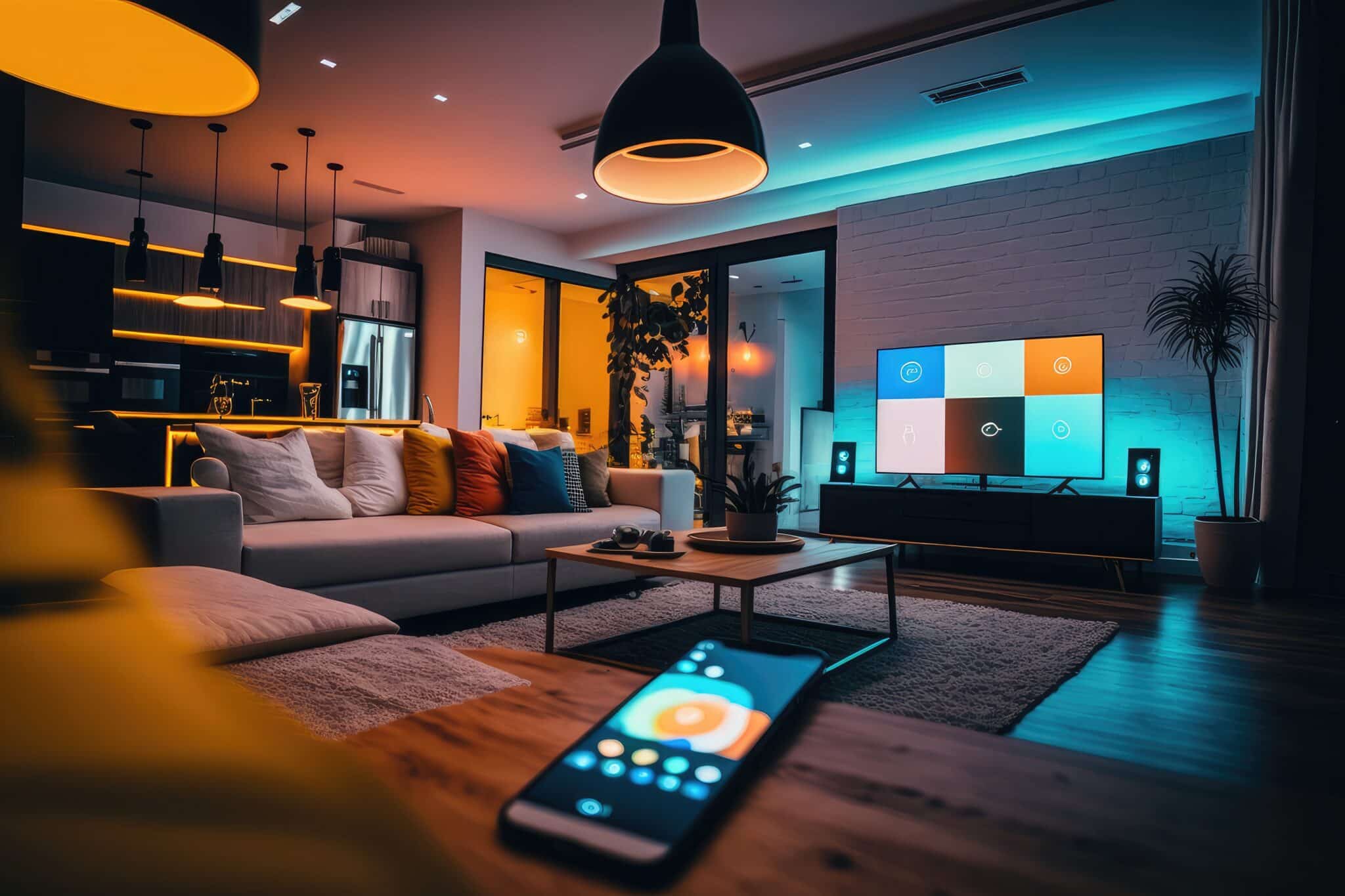In today’s rapidly evolving technological landscape, smart lighting has emerged as a key component of modern home automation systems. Beyond just turning lights on and off, smart lighting offers a host of features that enhance convenience, efficiency, and personalization. This article delves into what smart lighting is, explores different connectivity options like KNX and IoT, and highlights the numerous benefits of integrating smart lighting into both residential and commercial spaces.
What is Smart Lighting?
Smart lighting refers to lighting systems that can be controlled remotely or automatically through various means, such as smartphones, voice commands, or sensors. These systems go beyond traditional lighting by offering customizable lighting scenes, energy-saving features, and the ability to sync with other smart home devices. Smart lighting can adapt to your lifestyle, providing the perfect ambiance for any occasion while reducing energy consumption and improving overall convenience.
KNX Connectivity in Smart Lighting
KNX is a well-established standard for home and building automation, offering wired solutions that ensure reliability and stability. KNX-enabled smart lighting systems are particularly favored in large-scale commercial or residential projects due to their robustness. These systems integrate seamlessly with other building management systems, allowing centralized control over lighting, HVAC, and security systems. KNX lighting solutions are known for their precision, offering users the ability to create intricate lighting scenes tailored to specific needs, whether in an office building, hotel, or home.
IoT / Wireless Connectivity in Smart Lighting
The advent of the Internet of Things (IoT) has brought a new dimension to smart lighting, allowing for wireless connectivity and remote control. IoT-enabled smart lighting systems are typically easier to install, making them ideal for retrofitting existing buildings. These systems use wireless protocols such as Zigbee, Wi-Fi, or Bluetooth, enabling users to control their lighting from anywhere in the world via mobile apps or voice assistants like Alexa and Google Assistant. IoT smart lighting systems can also integrate with other smart devices, creating a cohesive and responsive smart home environment.
Benefits of Smart Lighting
- Energy Efficiency: One of the most significant benefits of smart lighting is its potential to reduce energy consumption. By utilizing sensors and automation, smart lighting systems can adjust brightness levels based on natural light or occupancy, ensuring lights are only on when needed. This not only lowers electricity bills but also contributes to environmental sustainability.
- Enhanced Security: Smart lighting can play a crucial role in enhancing the security of a property. Automated lighting schedules can make it appear as though someone is home even when the house is empty, deterring potential intruders. Additionally, motion-activated lights can be set up around the perimeter of a building to illuminate dark areas when movement is detected, providing an added layer of security.
- Personalization and Convenience: Smart lighting systems offer unparalleled levels of personalization. Users can create and save different lighting scenes for various activities, such as reading, dining, or watching a movie. With voice control and mobile app integration, adjusting the lighting becomes effortless, allowing for a more convenient and customized living experience.
- Improved Well-being: Research has shown that lighting can have a significant impact on mood, productivity, and overall well-being. Smart lighting systems can be programmed to mimic natural light cycles, promoting better sleep patterns and reducing eye strain. In work environments, smart lighting can help enhance focus and productivity by adjusting the color temperature and brightness throughout the day.
Smart lighting represents a significant advancement in the way we interact with our living and working spaces. Whether through the reliability of KNX connectivity or the flexibility of IoT wireless systems, smart lighting offers a host of benefits that go beyond mere illumination. By investing in smart lighting, homeowners and businesses can enjoy enhanced energy efficiency, security, personalization, and overall well-being, making it a valuable addition to any modern environment. As technology continues to advance, the possibilities for smart lighting will only expand, illuminating the future in ways we can only begin to imagine.


